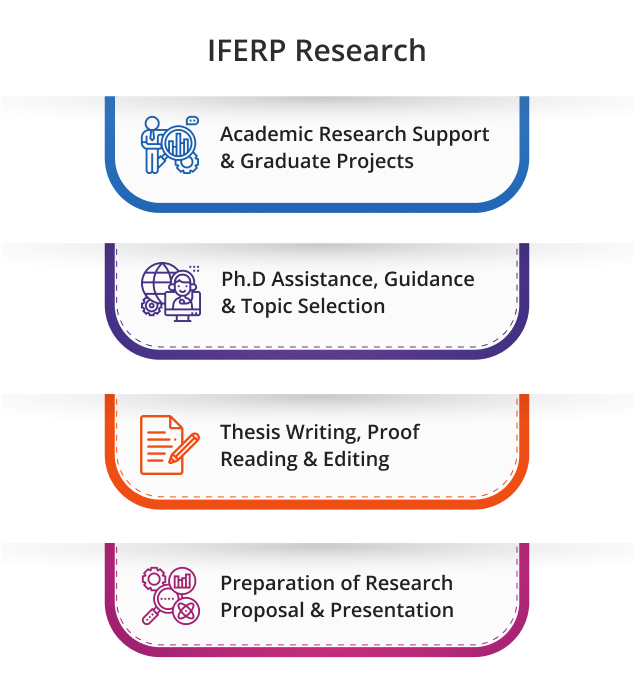IFERP Research Consultancy
Want to pioneer research in your field? Join IFERP's global community. Here, you may cooperate on breakthrough explorations to uncover, assess, and deploy the newest SDG technologies.
Want to change the world? Then, endeavour to achieve all Sustainable Development Goals, which aim to -
- End world poverty
- Protect our world,
- Global population welfare
Covering crucial aspects of human life such as Prolonged Social Development, All-Round Environmental Protection, Prolonged Economic Growth, and the Comprehensive Eradication of Global Poverty, Malnutrition & Hunger, the SDG objectives devised by the IFERP Research Consultancy are a healthy strategy for skilled and gifted researchers worldwide to work towards.

We pave the way for you to succeed
If you're a talented researcher who wants to make a difference with your work but doesn't know where to start, the SDGs provide a clear route. IFERP Research Consultancy created SDG to serve as a "blueprint for a better and more sustainable future for all humanity." This strategy focuses on three Sustainable Development pillars:

IFERP | Research Consultancy - Sustainable Development Goals (SDG)




